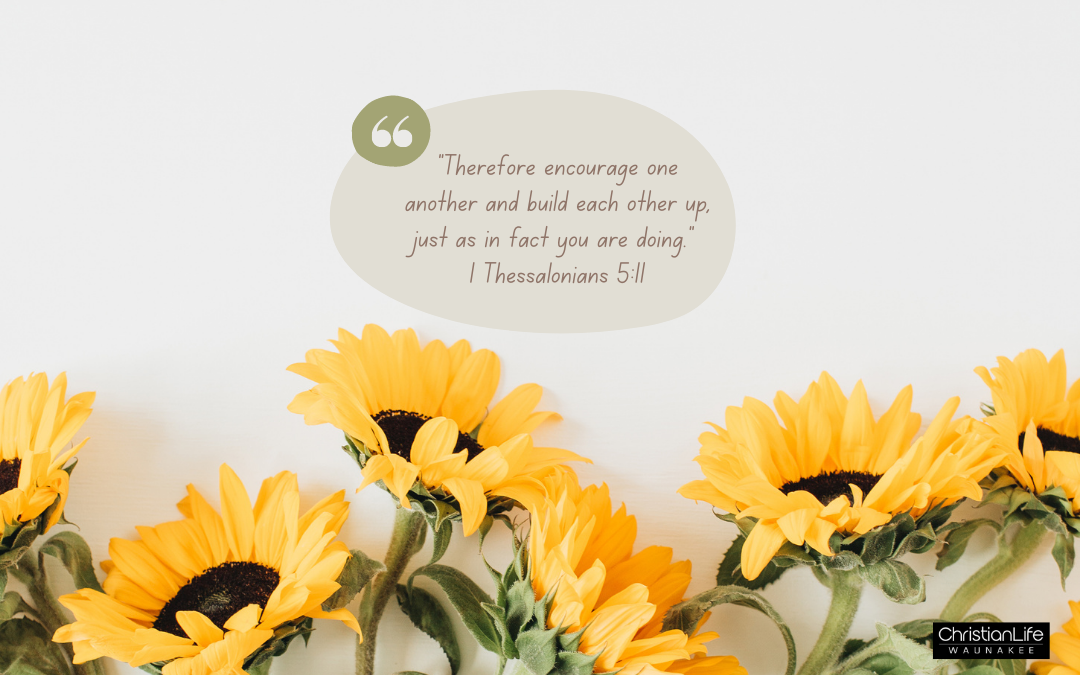“Therefore encourage one another and build each other up, just as in fact you are doing.” (1 Thessalonians 5:11, NIV)
When I worked as a tutor at a university writing center, students and I sometimes understood my job differently. Many students would come in and request that I “fix” their research paper/essay/resume, etc. Now, as writing center tutors, we were taught NOT to proofread or edit because students are expected to complete their own work. So my usual response would be to explain, “No, I can’t fix it for you, but I will help you plan how to improve it yourself.” However, our director taught a different approach. Rather than phrasing our explanations with a negative “no, but…,” she wanted us to lead with “yes, and….” This would help students adjust their expectations without discouraging them. So, for example, I might say, “Yes, I can help you learn how to fix your paper, and let’s start by making a plan for moving forward.”
At first, I pushed back against this policy. I think I misunderstood it to mean that I could never disagree with anything anyone said. There are some times, I thought, where you just have to say “no.” However, this “yes, and” technique has stuck with me even years after leaving that writing center. It made me think about how my words affected others. And it helped me make sure that, especially when someone was coming to me for help, the first words out of my mouth were positive ones.
I now use “yes, and” as a valuable tool for a lot of conversations and interactions in my life, and I think it can apply well within the church as we follow Paul’s encouragement to “build each other up” (1 Thessalonians 5:11). We’re often too quick to tear down others’ ideas, words, and contributions. We tend to have an attitude of “you’re wrong, I’m right,” which sabotages our efforts to help each other. “Yes, and” doesn’t mean we never disagree. The “yes” means we recognize what’s good and true in some other perspective, desire, or understanding. It means supporting and affirming each other in front of others. When the other person feels respected, loved, and cared for, it will be much easier for us to offer constructive criticism or correction if needed. The “and” involves offering our own ideas and perspective to build on theirs. This way, we work together toward a common goal rather than working against each other.
In this world where everything seems to be going crazy, it’s easy for cynicism to leech into different parts of our lives, causing us to assume the worst of others and behave in a reactionary way. We think, “I have to fight for my point of view,” when we should be helping each other learn and grow. Jesus taught us to have an attitude of humility. That doesn’t mean putting ourselves down and assuming we’re wrong all the time. But humility supposes the best of others and recognizes that someone else might be working as hard as we are to understand something and yet come to a different conclusion.
As the church, we should be united by the truth of the Gospel and by our love for Jesus. But, we’re too often divided by peripheral concerns like denominations, music, preaching style, and other practices. It’s not that we can’t disagree about these things and hold strong opinions about them. But we should be just as ready to build each other up and recognize and praise the good in each other as we strive to follow Christ to the best of our ability. Maybe embracing a “yes, and” attitude can help us do that.
—————————————————

